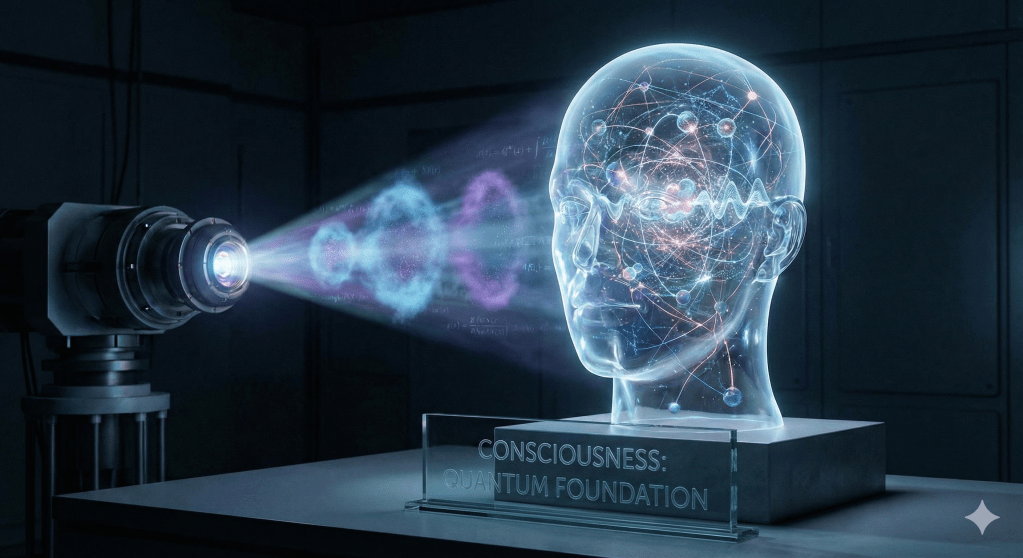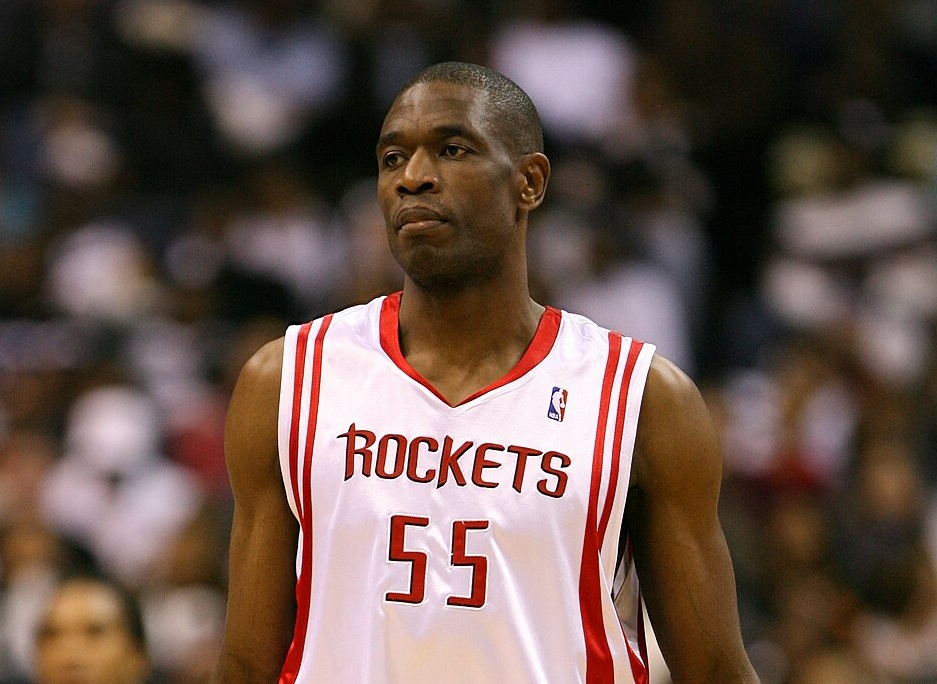Epigraph:
And if your Lord had enforced His will, surely, all who are on the earth would have believed together. Will you, then, force men to become believers? (Al Quran 10:99)
And they ask you concerning the soul. Say, ‘The soul is by the command of my Lord; and of the knowledge thereof you have been given but a little.’ (Al Quran 17:85)
The Muslim Times’ Chief Editor’s comments:
I think the above short video of Christof Kock is useful in defining the problem of freewill. It seems that full blooded atheists like Daniel Dennett go in with the premise that our universe is a closed system and end up with conclusions like: there is no freewill or consciousness. Obviously, they live each and every moment of their life in denial of their claim and are choosing to write books and make videos denying freewill!
I as a Muslim philosopher want to start with what is fundamental and explain the peripheral with its help rather than the other way round. (Al Quran 3:7). So, I am conscious and I have freewill and I want to explain everything in its light. That I find is a more fulfilling journey.
The Latin cogito, ergo sum, usually translated into English as “I think, therefore I am“,[a] is the “first principle” of René Descartes‘s philosophy. He originally published it in French as je pense, donc je suis in his 1637 Discourse on the Method, so as to reach a wider audience than Latin would have allowed.[1] It later appeared in Latin in his Principles of Philosophy, and a similar phrase also featured prominently in his Meditations on First Philosophy. The dictum is also sometimes referred to as the cogito.[2] As Descartes explained in a margin note, “we cannot doubt of our existence while we doubt.” In the posthumously published The Search for Truth by Natural Light, he expressed this insight as dubito, ergo sum, vel, quod idem est, cogito, ergo sum (“I doubt, therefore I am — or what is the same — I think, therefore I am”).[3][4] Antoine Léonard Thomas, in a 1765 essay in honor of Descartes presented it as dubito, ergo cogito, ergo sum (“I doubt, therefore I think, therefore I am”).[b]
Descartes’s statement became a fundamental element of Western philosophy, as it purported to provide a certain foundation for knowledge in the face of radical doubt. While other knowledge could be a figment of imagination, deception, or mistake, Descartes asserted that the very act of doubting one’s own existence served—at minimum—as proof of the reality of one’s own mind; there must be a thinking entity—in this case the self—for there to be a thought.
This philosophy of René Descartes has been the foundation of the scientific method and the scientific revolution for the last few centuries. The irony of fate is that now, with the help of such scientific findings, some philosophers want to deny the very foundation, or cutting the very branch of tree that they are sitting on.
So, in view of this history of the last four centuries we do not need to deny our moment by moment and life long experience of freewill.
With that I want to collect here the most relevant on this subject. First two complete videos by Closer to Truth on the subject of freewill:
…
In the video below John Searle is trying to explain consciousness and freewill with quantum physics:
Searle calls compatibilism a copout and the fact is majority of the academic philosophers are compatibilist. If that is the case we lesser humans have a right to be philosophers also and we can opine on freewill and more.
Who is Christopher Koch?
Christof Koch (/kɒx/ KOKH;[1] born November 13, 1956) is a German-American neurophysiologist and computational neuroscientist best known for his work on the neural basis of consciousness. He was the president and chief scientist of the Allen Institute for Brain Science in Seattle. He remains at the Institute as a Meritorious Investigator. He is also the Chief Scientist of the Tiny Blue Dot Foundation in Santa Monica,[2] that funds research meant to alleviate suffering, anxiety and other forms of distress in all people.
From 1986 until 2013, he was a professor at the California Institute of Technology.[3]
Koch has authored more than 350 scientific papers and six books about how computers and neurons process information.[7]
In 1986, Koch and Shimon Ullman proposed the idea of a visual saliency map in the primate visual system.[8][9][10] Subsequently, his then PhD-student, Laurent Itti, and Koch developed a popular suite of visual saliency algorithms.[11][12]
For over two decades, Koch and his students have carried out detailed biophysical simulations of the electrical properties of neuronal tissue, from simulating the details of the action potential propagation along axons and dendrites to the synthesis of the local field potential and the EEG from the electrical activity of large populations of excitable neurons.
Since the early 1990s, Koch has argued that identifying the mechanistic basis of consciousness is a scientifically tractable problem, and has been influential in arguing that consciousness can be approached using the modern tools of neurobiology. He and his student Nao Tsuchiya invented continuous flash suppression,[13] an efficient psychophysical masking technique for rendering images invisible for many seconds. They have used this technique to argue that selective attention and consciousness are distinct phenomena, with distinct biological functions and mechanisms.
Koch’s primary collaborator in the endeavor of locating the neural correlates of consciousness was the molecular biologist turned neuroscientist, Francis Crick, starting with their first paper in 1990[14] and their last one, that Crick edited on the day of his death, July 24, 2004, on the relationship between the claustrum, a mysterious anatomical structure situated underneath the insular cortex, and consciousness.[15][16]
Over the last decade, Koch has worked closely with the psychiatrist and neuroscientist Giulio Tononi. Koch advocates for a modern variant of panpsychism, the ancient philosophical belief that some form of consciousness can be found in all things. Tononi’s Integrated Information Theory (IIT) of consciousness differs from classical panpsychism in that it only ascribes consciousness to things with some degree of irreducible cause-effect power, which could include the internet “Thus, its sheer number of components exceeds that of any one human brain. Whether or not the Internet today feels like something to itself is completely speculative. Still, it is certainly conceivable.” but does not include “a bunch of disconnected neurons in a dish, a heap of sand, a galaxy of stars or a black hole,”[6] and by providing an analytical and empirically accessible framework for understanding experience and its mechanistic origins. He and Tononi claim that IIT is able to solve the problem in conceiving how one mind can be composed of an aggregate of “smaller” minds, known as the combination problem.[17]
Koch writes a popular column, Consciousness Redux, for Scientific American Mind on scientific and popular topics pertaining to consciousness.
Koch co-founded the Methods in Computational Neuroscience summer course[18] at the Marine Biological Laboratory in Woods Hole in 1988, the Neuromorphic Engineering summer school[19] in Telluride, Colorado in 1994 and the Dynamic Brain summer course[20] at the Friday Harbor Laboratories on San Juan Island in 2014. All three summer schools continue to be taught.
In early 2011,[21] Koch became the chief scientist and the president of the Allen Institute for Brain Science, leading their ten-year project concerning high-throughput large-scale cortical coding. The mission is to understand the computations that lead from photons to behavior by observing and modeling the physical transformations of signals in the visual brain of behaving mice.[22] The project seeks to catalogue all the building blocks (ca. 100 distinct cell types) of the then visual cortical regions and associated structures (thalamus, colliculus) and their dynamics. The scientists seek to know what the animal sees, how it thinks, and how it decides. They seek to map out the murine mind in a quantitative manner. The Allen Institute currently employs about 300 scientists, engineers, technologists and supporting personnel.[23] The first eight years of this ten-year endeavor to build brain observatories were funded by a donation more than $500 million[24] by Microsoft founder and philanthropist Paul G. Allen.
Koch is a proponent of the idea that consciousness is a fundamental property of complex nervous networks. In 2014, he published a short discussion work, In which I argue that consciousness is a fundamental property of complex things, where he introduced the concept that consciousness is a fundamental property of networked entities, and therefore cannot be derived from anything else, since it is a simple substance.[25]
In 2023, Koch lost a 25-year bet to philosopher David Chalmers. Koch bet that the neural underpinnings of consciousness will be well-understood by 2023, while Chalmers, bet the contrary. Upon losing the bet, Koch gifted Chalmers with a case of fine wine.[26]
Is Koch’s work, life and CV a vindication of the above verses of the Quran quoted as epigraph?
What is physicalism or materialism?
Materialism is a form of philosophical monism which holds that matter is the fundamental substance in nature, and that all things, including mental states and consciousness, are results of material interactions of material things. According to philosophical materialism, mind and consciousness are caused by physical processes, such as the neurochemistry of the human brain and nervous system, without which they cannot exist. Materialism directly contrasts with idealism, according to which consciousness is the fundamental substance of nature.
Materialism is closely related to physicalism—the view that all that exists is ultimately physical. Philosophical physicalism has evolved from materialism with the theories of the physical sciences to incorporate more sophisticated notions of physicality than mere ordinary matter (e.g. spacetime, physical energies and forces, and exotic matter). Thus, some prefer the term physicalism to materialism, while others use the terms as if they were synonymous.
Discoveries of neural correlates between consciousness and the brain are taken as empirical support for materialism, but some philosophers of mind find that association fallacious or consider it compatible with non-materialist ideas.[1][2] Alternative philosophies opposed or alternative to materialism or physicalism include idealism, pluralism, dualism, panpsychism, and other forms of monism. Epicureanism is a philosophy of materialism from classical antiquity that was a major forerunner of modern science. Though ostensibly a deist, Epicurus affirmed the literal existence of the Greek gods in either some type of celestial “heaven” cognate from which they ruled the universe (if not on a literal Mount Olympus), and his philosophy promulgated atomism, while Platonism taught roughly the opposite, despite Plato’s teaching of Zeus as God.
Could Free Will and Consciousness be a Defeater for Atheism and Physicalism
Epigraph “Watch your thoughts, they become your words; watch your words, they become your actions; watch your actions, they become your habits; watch your habits, they become your character; watch […]
Analyzing Free Will with Robert Lawrence Kuhn
Written and collected by Zia H Shah MD In this video, episode number 910, Kuhn and the first interviewee start off with false dilemma of determinism and indeterminism. Indeterminism is […]
Rewiring the Brain to Treat OCD and Its Impact on Free Will
Rewiring the Brain to Treat OCD Source: Discovery magazine A groundbreaking therapy, relying on mindfulness meditation to treat obsessive compulsive disorder, suggests even adult brains have neuroplasticity By Steve Volk Dec […]
Gathering Philosophers and Scientists Who Believe in Free Will
Epigraph: And if your Lord had enforced His will, surely, all who are on the earth would have believed together. Wilt you, then, force men to become believers? (Al Quran 10:99) … […]
If there is freewill, so is Providence: Refuting the best of atheism through the latest science
Epigraph: And He (Allah) gave you all that you wanted of Him; and if you try to count the favors of Allah, you will not be able to number them. Indeed, man […]
The Problem of Free Will: Is There a Problem?
Epigraph: Allah burdens not any soul beyond its capacity. It shall have the reward it earns, and it shall get the punishment it incurs. Our Lord, do not punish us, if we forget or […]
Could additional dimensions defeat atheism without defeating physicalism?
Is Freewill a Defeater for Physicalism or Atheism? Epigraph: And if your Lord had enforced His will, surely, all who are on the earth would have believed together. Will you, then, force […]
Who is John Searle?
John Rogers Searle (American English pronunciation: /sɜːrl/; born July 31, 1932)[4] is an American philosopher widely noted for contributions to the philosophy of language, philosophy of mind, and social philosophy. He began teaching at UC Berkeley in 1959, and was Willis S. and Marion Slusser Professor Emeritus of the Philosophy of Mind and Language and Professor of the Graduate School at the University of California, Berkeley, until June 2019, when his status as professor emeritus was revoked because he was found to have violated the university’s sexual harassment policies.[5]
As an undergraduate at the University of Wisconsin–Madison, Searle was secretary of “Students against Joseph McCarthy“. He received all his university degrees, BA, MA, and DPhil, from the University of Oxford, where he held his first faculty positions. Later, at UC Berkeley, he became the first tenured professor to join the 1964–1965 Free Speech Movement. In the late 1980s, Searle challenged the restrictions of Berkeley’s 1980 rent stabilization ordinance. Following what came to be known as the California Supreme Court’s “Searle Decision” of 1990, Berkeley changed its rent control policy, leading to large rent increases between 1991 and 1994.
In 2000, Searle received the Jean Nicod Prize;[6] in 2004, the National Humanities Medal;[7] and in 2006, the Mind & Brain Prize. In 2010 he was elected to the American Philosophical Society.[8] Searle’s early work on speech acts, influenced by J.L. Austin and Ludwig Wittgenstein, helped establish his reputation. His notable concepts include the “Chinese room” argument against “strong” artificial intelligence.
Archives
…






Leave a comment